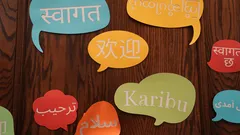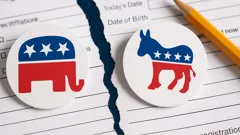624
5
4 minutes
Suggested Articles

First-generation Ivy Leaguers triumph over unique college challenges
Discover key insights, life hacks, and data-driven tips for first-generation college students thriving in prestigious U.S. universities. Find practical strategies, unique challenges, and fresh perspectives essential for student success.

American Identity: Ideals, Symbols, and the Ongoing Debate Over Inclusion
Civic Education

Mesa County school board rejects new curriculum amid heated debate
News & Updates

Americans build empathy and strengthen democracy through language learning
Civic Education

Voter and Civic Education: The Cornerstones of True Democracy
Civic Education

How Education Became the Sharpest Fault Line in American Politics
News & Updates

Civics lessons give students a lifeline in times of community crisis
Civic Education

Americans find deep unity and pride in the powerful meaning of their flag
News & Updates

Teachers in Los Angeles empower students with real-life civics during crisis
Civic Education

The Unseen Shift: Student Knowledge from 1982 to 2025 Reveals Surprises
Civic Education

US withdrawal from UNESCO reshapes global education and cultural influence
Civic Education

First-generation Ivy Leaguers triumph over unique college challenges
Hiring

Americans brace for possible Social Security cuts that reshape retirement
News & Updates

Why this Florida data leak changes how we think about privacy
News & Updates

Build your own AI chatbot and unlock hands-on tech superpowers
Resources & Tools

How to outsmart hidden medical expenses in your golden years
Civic Education

California workers secure jobs this summer with new 2025 laws
Hiring
 Love Women Vibes
Love Women Vibes

Comments